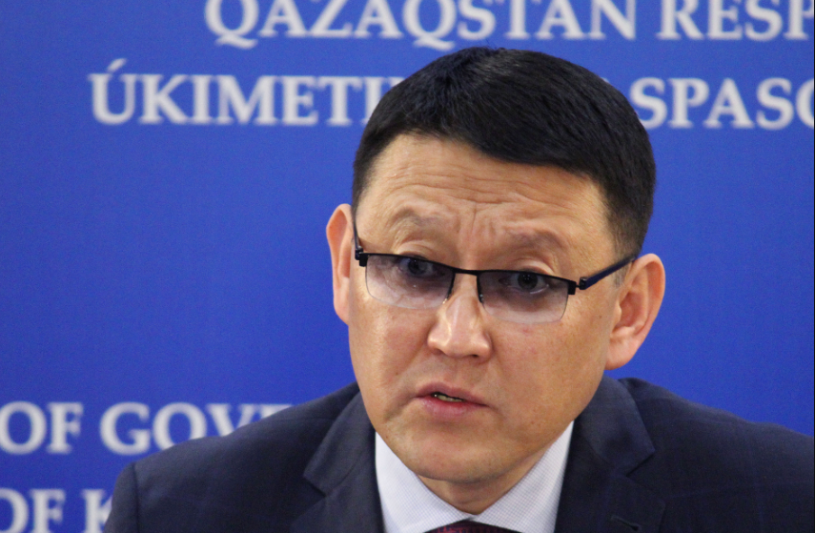NUR-SULTAN – Kazakh small and medium sized businesses (SMEs) generated more than 28 trillion tenge (US$73.8 billion) in 2018, said Vice Minister of National Economy Yermek Alpysov at a May 22 press briefing.
The number of SMEs also grew 8.3 percent to 1,241,328 compared to 2017, with the most in Almaty, the capital and the Turkestan Region.
The SME share of the country’s GDP grew from 25 percent in 2015 to 28 percent in 2018. SME engagement rose by 3.4 percent, he said.
Kazakhstan’s road map providing for measures to develop businesses until 2020 includes support for SMEs. The country committed 210.5 billion tenge (US$555.2 million) within four years of the programme.
“These funds, first of all, allowed financing 13,000 SMEs, training 20,000 entrepreneurs every year on average, creating 10,000 jobs and producing output exceeding three trillion tenge (US$7.9 billion). They paid 175 billion tenge (US$461.5 million) annually in taxes,” said Alpysov.
“Fifty-three billion tenge (US$139.8 million) or 25 percent [of the funds] were used to build the infrastructure near plants and SMEs; the rest is used for guaranteeing loans, providing grants, training and consultancy services,” he added.
The demand, he noted, is very high. Starting this year, the government will allocate 600 billion tenge (US$1.58 billion) to address affordable loan provisions as part of an Economy of Simple Things, a new programme focused on developing the light manufacturing, construction and furniture industries.
Since the beginning of the year, second-tier banks have approved 15 billion tenge (US$39.5 million) in loans for 28 applications. An additional 104 projects worth 139 billion tenge (US$366.6 million) are pending approval.
Damu Business Development Fund, a subsidiary of Baiterek Holding, also subsidised 24 projects worth eight billion tenge (US$21.1 million).
Baiterek Holding Chair Aidar Arifkhanov noted SMEs can apply to the fund to receive subsidies and collateral security should they lack sufficient collateral.
“We support businesses in small and mono cities and rural areas, in priority sectors of the economy and our export potential and exporters that target foreign markets. Over these years [since 2010], we subsidised 13,000 projects and provided collateral to 5,000 projects,” he said.
Atamaken National Chamber of Entrepreneurs Chair Eldar Zhumagaziev noted lack of sufficient collateral is a common obstacle for SMEs in securing funding through banks.
“According to the survey, 66.7 percent of respondents said banks deny loans citing lack of liquidity. This is a huge hurdle. Another 67 percent said banks do not accept their collateral as they are based outside the city. We strongly urge the ministry to help with alternative measures,” he said.
Increasing business capacity is one of the programme’s important directions. Enterprises can learn business basics, enhance their competency and receive consultations, with specialists explaining how to develop a business plan, pay taxes, submit declaration and obtain licenses.
Atamaken provides free services to entrepreneurs at their business service centres across the country. More than 174,000 businesses have used the services, including 19,000 online.
“The impact is obvious. More than 46,000 companies were opened, more than 8,000 companies expanded their business and more than 23,000 entrepreneurs were able to receive more than 206 billion tenge (US$543.7 million) through our consultations and services. More than 74,000 people got trained at our business school,” said Zhumagaziev.
He noted state support measures need to be analysed.
“Perhaps it will be a quarterly or annual report and if some of the measures do not work, it will be possible to incorporate a new, effective one into the programme. I believe we need this, because there is digitisation going on, a very huge flow of new technologies from abroad. Liquidity of the company depends on technological efficiency of the process, which makes it hard to survive on the market,” he said.
The ministry is currently preparing a draft business development road map until 2025 and has formed a working group to start the discussion.
Alpysov urged the business community to take part in the decision making process.
“We are ready to consider all suggestions. I am sure these measures will ensure availability of business support measures and financing and will give an opportunity to increase the contribution of business to the country’s economy. We need to focus on business,” he said.


